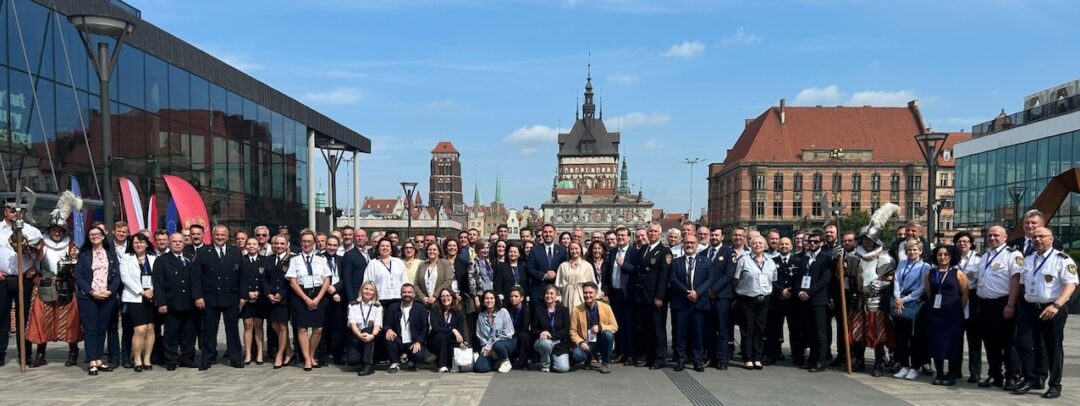Nice, France, October 2021 – While the protection of public spaces featured prominently at Efus’ Security, Democracy and Cities conference (Nice, 20-22 October), the consortium of the European project Secu4All capitalised on the event to organise on site its coordination meeting and a field visit, as well as to present its work to an international audience.
A multidisciplinary approach
Led by Efus since December 2020, Secu4All seeks to strengthen local and regional authorities’ capacities by offering them theoretical knowledge and practical tools to protect public spaces and soft targets (such as sports venues, shopping centres and schools) against potential threats. The project promotes a multidisciplinary approach associating local and regional authorities, police, urban planners, first respondents, civil society organisations, the private sector and local communities in order to co-produce the security of public spaces while ensuring they remain open and accessible for all.

A mid-term coordination meeting
The coordination meeting was an opportunity for the partners to meet in person for the first time since the outbreak of the pandemic, which they all appreciated. They discussed the progress made as the project reaches its midpoint and the content of the training programme that will be tested from January 2022 onwards in the cities of Xábia, The Hague and Riga as well as by the German (DEFUS), French (FFSU) and Italian (FISU) Forums for Urban Security.
Field visit of the Nice CCTV command centre
The field visit took place at the Nice’s CCTV command centre, which is considered as a benchmark. Set up in 2010, the Urban Supervision Centre is manned by a team of 90 civil servants and controls 3,865 cameras. It is used by different agencies such as the national police, the gendarmerie, the Prosecutor’s Office, and the fire brigade.
One of the original aspects of the visit was that it was organised both by the City of Nice and the City of Riga (Latvia) with a view to fostering direct dialogue between cities on common urban security issues.
Focus session on the project’s holistic approach
Secu4All was also represented in a Focus session in which Lawrence Schätzle from DEFUS explained how the project’s holistic approach takes into account the various uses and users of public spaces, and the various stakeholders that contribute to protecting them.
One of the project’s key outcomes is the training programme it has developed for local and regional authorities who contribute to public spaces’ security through their design, management or planning. The project thus hinges on knowledge development, transfer, consolidation and dissemination by developing the content and educational material of the training, but also by delivering it online and on site through practical exercises and case studies. Furthermore, the project will produce an e-learning platform that will be available to any interested local or regional authority.
A common culture of security in public spaces
The Secu4All partners also participated in the conference’s two thematic workshops on the issue of the protection of public spaces: Foresight strategies to better protect public spaces and promote urban resilience and How can cities design and manage safer, more inclusive public spaces.
The speakers and participants in these sessions highlighted the need to create a common culture of security in public spaces based on training and co-production mechanisms. They insisted on the importance of citizen participation and transparency to better protect these spaces and strengthen the resilience of cities. Another key takeaway is the need to use new technologies, particularly those for surveillance, in a democratic way that respects fundamental rights. Such technologies should always be considered as complimentary tools and not an end in themselves.
> The minutes of the two ‘public spaces’ workshops of the Security, Democracy and Cities conference in Nice are available on our website / Secutopic Public Spaces
* Brussels Capital Region (Belgium); Riga Municipal Police (Latvia); City of Xábia (Spain); City of The Hague (Netherlands); European Organisation for Security-EOS; Centre for Security Studies-KEMEA (Greece); Dutch Institute for Technology, Safety & Security (DITSS); Dsp-groep Bv-DSP (Netherlands); CRIMINA centre of the Miguel Hernandez University in Elche (Spain); German, French and Italian Forums for Urban Security (DEFUS, FFSU, FISU).




